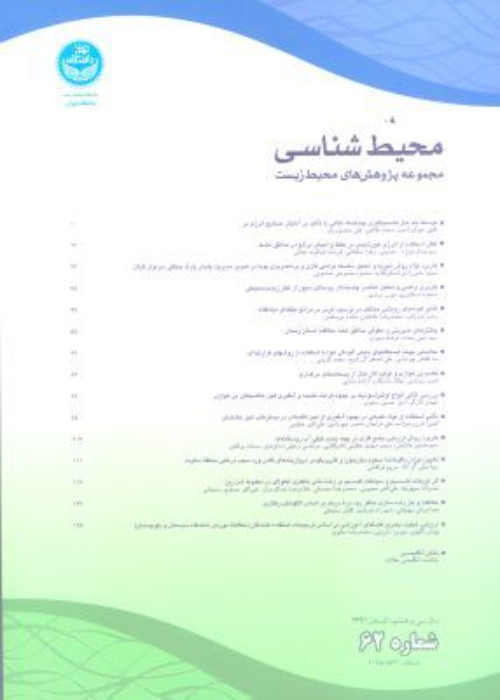Spatial Autocorrelation of CO2 Pollution through the Spatial Spillover of Goods Governance in Middle Eastern and North African Countries
Author(s):
Abstract:
IntroductionSpatial autocorrelation is a known phenomenon in ecological studies that refer to the relationship between certain variables observed in different localities. Whereas correlation statistics were designed to show the relationship between variables, autocorrelation statistics are designed to show the correlations within variables, and spatial autocorrelation shows the correlation within variables across space. Most natural ecological phenomena display spatial autocorrelation found at all spatial scales. Although the spatial autocorrelation concept was developed principally in the late 1950s, it has been applied in environmental economic studies for less than a decade and primarily as a new explanatory variable in the environmental Kuznets curve (EKC) relationship. Spatial ecological autocorrelation is often driven by multiple causes that may be exogenous or endogenous. Maddison (2007) specifies three endogenous mechanisms of spatial environmental autocorrelation: pollution displacement hypothesis, foreign direct investment (FDI) and international trade, and finally, the strategic response of countries to transboundary pollution flows. In the pollution displacement hypothesis, higher-income countries import pollution-intensive goods and in fact export their pollution to lower-income countries. As numerous empirical analyses have identified distance as an important factor in determining the volume of trade, a country’s emissions should be influenced by its neighbors. FDI and international trade are the mechanisms of technology diffusion. Again, distance is a determinant of technology diffusion, and consequently one might expect spatial autocorrelation through FDI and international trade. Finally, spatial autocorrelation may occur as a consequence of countries’ strategic response to transboundary pollution flows. In this case, the spatial relationship between countries is defined not by distance, but by the meteorologically determined pattern of transboundary deposition of pollutions.This paper examines a new mechanism for spatial environmental autocorrelation through institutions. In this mechanism, when the institutions of a country affect its own environmental quality, they affect the institutions of their neighbors simultaneously. This mechanism, which can be called the spatial institutional spillover effect, links the environmental quality of countries together. Materials and MethodsTwo recent findings about the features of institutions influence the subject of this paper. First, institutions and institutional quality can affect the quality of environment. Second, institutional quality can spread spatially. Theoretically, a combination of these two features paves our way to the idea that the environmental quality of geographic units (especially countries) can spread through institutions.
Language:
Persian
Published:
Journal of Environmental Studies, Volume:38 Issue: 1, 2012
Page:
83
magiran.com/p1001953
دانلود و مطالعه متن این مقاله با یکی از روشهای زیر امکان پذیر است:
اشتراک شخصی
با عضویت و پرداخت آنلاین حق اشتراک یکساله به مبلغ 1,390,000ريال میتوانید 70 عنوان مطلب دانلود کنید!
اشتراک سازمانی
به کتابخانه دانشگاه یا محل کار خود پیشنهاد کنید تا اشتراک سازمانی این پایگاه را برای دسترسی نامحدود همه کاربران به متن مطالب تهیه نمایند!
توجه!
- حق عضویت دریافتی صرف حمایت از نشریات عضو و نگهداری، تکمیل و توسعه مگیران میشود.
- پرداخت حق اشتراک و دانلود مقالات اجازه بازنشر آن در سایر رسانههای چاپی و دیجیتال را به کاربر نمیدهد.
دسترسی سراسری کاربران دانشگاه پیام نور!
اعضای هیئت علمی و دانشجویان دانشگاه پیام نور در سراسر کشور، در صورت ثبت نام با ایمیل دانشگاهی، تا پایان فروردین ماه 1403 به مقالات سایت دسترسی خواهند داشت!
In order to view content subscription is required
Personal subscription
Subscribe magiran.com for 70 € euros via PayPal and download 70 articles during a year.
Organization subscription
Please contact us to subscribe your university or library for unlimited access!


